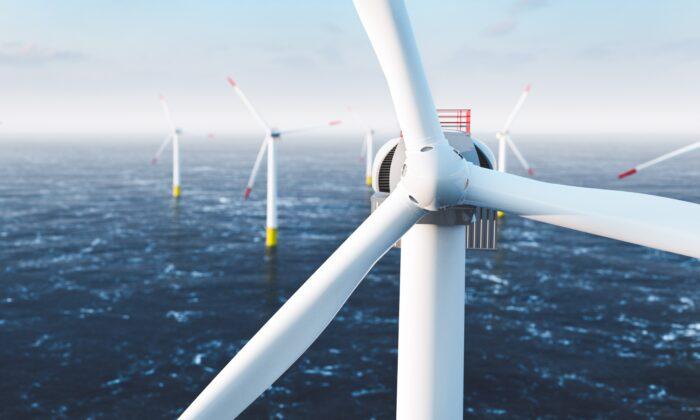The Australian government and environmental groups have unanimously applauded new legislation that will allow stymied offshore wind and transmission projects to begin development.
The new laws passed through the Senate on Nov. 25 outline the regulatory framework required for offshore energy projects as Australia’s ageing coal-fired fleet gradually sees retirement.
Energy and Emissions Minister Angus Taylor heralded the legislation as vital in facilitating the development of energy projects that will help secure the nation’s power generation, strengthen the economy, and boost jobs.

Key projects that had been awaiting approvals include Australia’s first offshore wind project, Star of the South; an interstate cable between Tasmania and Victoria called the Marinus Link; and Sun Cable, an intercontinental connector between Australia and Singapore.
“Combined, these three proposals—Marinus Link, Star of the South and Sun Cable—are estimated to be worth over $10 billion and create over 10,000 direct and indirect job opportunities,” Taylor said.
Compared to onshore wind and solar, offshore wind provides power more consistently, often called its “capacity factor”—the percentage of actual energy provided compared with its maximum theoretical amount.
For example, while a wind farm may have the capacity to produce 1,000 MWh (megawatt-hours) of energy a year at constant, strong wind—in reality, dips in wind levels may reduce this down to only 300 MWh, or a capacity factor of 30 percent.

Concerns have also been raised regarding the intermittent nature of wind and other renewables. In particular, the United Kingdom leads the world in offshore wind generation, with offshore and onshore wind contributing to close to one-quarter of electricity supplied in 2020.
The new legislation comes amid growing domestic and international pressure for the nation to make good on its commitment to reach net-zero emissions by 2050, which was completed last month in the lead up to the 26th United Nations (U.N.) climate summit.
In particular, the U.N. Intergovernmental Panel on Climate Change (IPCC) had earlier released its Sixth Assessment Report proposing man-made emissions as the root cause of climate change and urged the eventual abandonment of fossil fuels.
Climate change communications organisation, the Climate Council, pointed to a total of 12 offshore wind projects that had been awaiting the bill, which included Star of the South and its potential to supply 20 percent of Victoria’s energy needs from Tasmania’s largely hydropower-based grid.
“Unfortunately, much like Australia’s broader action on climate change, we are lagging behind the rest of the world when it comes to offshore wind.”





